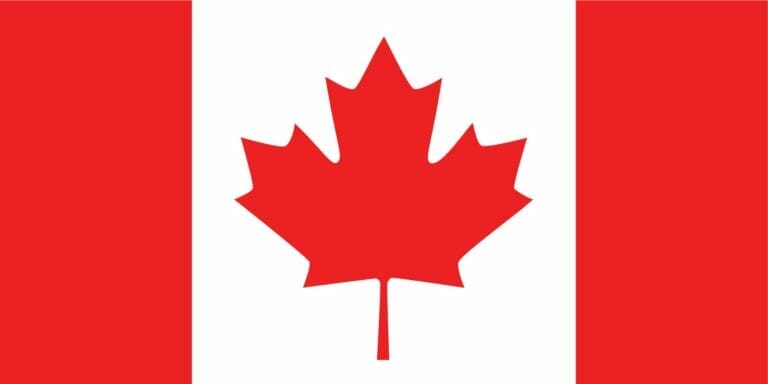Everything You Need to Know About STEM Occupations for Express Entry Category-Based Draws
As the world becomes increasingly digital, the demand for skilled professionals in Science, Technology, Engineering, and Mathematics (STEM) fields continues to rise. In the realm of immigration, countries like Canada have recognized the immense value that STEM talent brings to their economies. For individuals aspiring to immigrate to Canada through the Express Entry program, having a background in a STEM occupation can significantly boost their chances of success. In this comprehensive guide, we delve into everything you need to know about STEM occupations for Express Entry category-based draws, providing you with key insights and strategies to enhance your immigration prospects.
Understanding Express Entry and Category-Based Draws
Before we explore the significance of STEM occupations within the Express Entry system, let’s first grasp the fundamentals of the program. Express Entry is a points-based system designed by Immigration, Refugees and Citizenship Canada (IRCC) to manage applications for permanent residence. The program aims to attract highly skilled individuals who can contribute to Canada’s economic growth.
Express Entry operates through category-based draws, wherein candidates with the highest Comprehensive Ranking System (CRS) scores receive Invitations to Apply (ITAs) for permanent residence. The CRS score is determined based on various factors such as age, education, work experience, language proficiency, and adaptability. The ability to secure a higher CRS score is crucial for successful immigration, and this is where STEM occupations come into play.
The Significance of STEM Occupations in Express Entry
STEM occupations are highly valued in the Express Entry system due to their potential to fuel innovation, research, and economic development. Candidates with work experience in STEM fields can earn significant CRS points, which provide a competitive advantage in category-based draws.
To maximize your CRS score, it is essential to understand how STEM occupations are classified within the National Occupational Classification (NOC) system. The NOC assigns a unique code to each occupation, categorizing them into different skill levels. Occupations classified under NOC skill levels 0, A, or B are generally considered eligible for the Express Entry program, and many STEM occupations fall under these categories.
In-Demand STEM Occupations in Express Entry
To further enhance your chances of success, it is beneficial to familiarize yourself with the in-demand STEM occupations within the Express Entry program. Some of the sought-after STEM occupations include:
- Software Engineer (NOC 2173)
- Database Analyst (NOC 2172)
- Civil Engineer (NOC 2131)
- Mechanical Engineer (NOC 2132)
- Electrical Engineer (NOC 2133)
- Data Scientist (NOC 2172)
- Computer Programmer (NOC 2174)
- Biologist (NOC 2121)
- Mathematician (NOC 2161)
- Statistician (NOC 2161)
Having work experience in these occupations can significantly boost your CRS score, increasing your chances of receiving an ITA for permanent residence.
Strategies to Optimize Your CRS Score
Securing a high CRS score is essential for successful immigration through Express Entry. Here are some effective strategies to optimize your CRS score:
Education: Pursue higher education in a STEM field, such as a bachelor’s or master’s degree. A higher level of education earns more CRS points.
Language Proficiency: Achieve high scores in language proficiency tests like IELTS or CELPIP. Strong language skills, especially in English or French, can significantly enhance your CRS score.
Work Experience: Gain relevant work experience in a NOC 0, A, or B occupation, preferably in a STEM field. The more years of experience you accumulate, the more CRS points you can earn.
Provincial Nominee Programs (PNPs): Explore opportunities offered by Provincial Nominee Programs across Canada. Many provinces have specific streams that target STEM professionals, providing additional CRS points.
Spousal Factors: Leverage the spousal factor by ensuring your spouse or partner also meets the eligibility requirements for Express Entry. Their language proficiency and education can contribute to your overall CRS score.
Adaptability Factors: Maximize CRS points through factors like previous work or study experience in Canada, having a valid job offer, or demonstrating adaptability through family ties in Canada.
Conclusion
In conclusion, possessing a background in a STEM occupation can greatly enhance your chances of success in the Express Entry program. As countries like Canada increasingly prioritize STEM talent, individuals with expertise in Science, Technology, Engineering, and Mathematics have a competitive edge in category-based draws. By understanding the significance of STEM occupations, exploring in-demand fields, and implementing strategies to optimize your CRS score, you can maximize your immigration prospects. Remember to stay informed about the latest updates and requirements, as immigration policies are subject to change. Good luck on your journey to a promising future in Canada!









